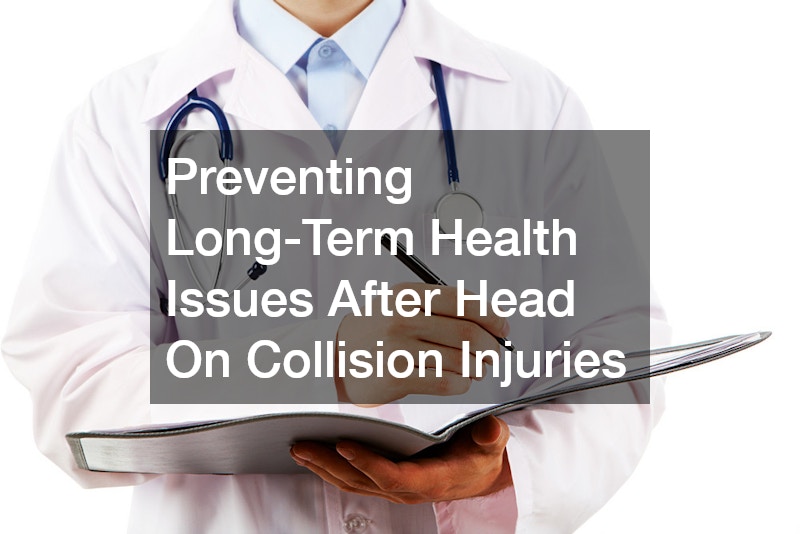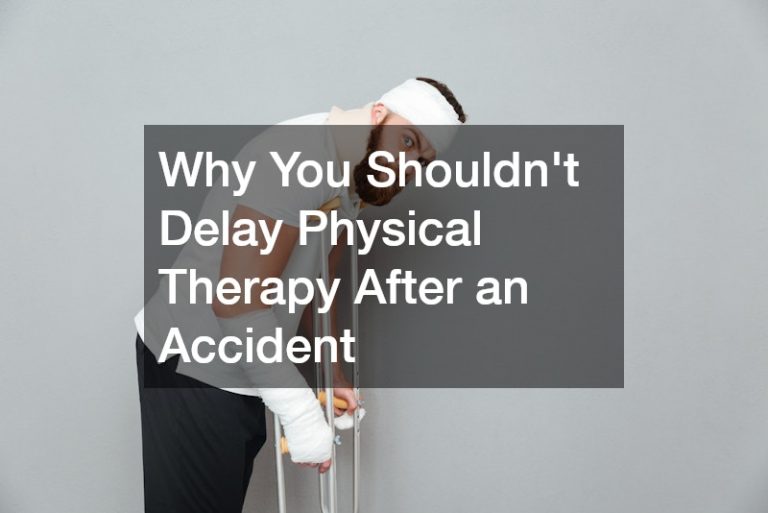Experiencing a front-end automotive crash can have devastating and life-altering effects. Beyond the immediate impact, these types of accidents often result in severe injuries that can lead to long-term health issues if not properly addressed. Common consequences include damage to multiple internal systems, such as cardiovascular health, musculoskeletal structure, and neurological functioning. The pressing need for thorough post-accident medical evaluations and appropriate treatment cannot be overstated. Establishing a specialized healthcare team early in the recovery process can significantly improve outcomes for those affected. By connecting with local experts in cardiology, orthopedics, and rehabilitation, victims can better navigate the healing journey. Additionally, it is crucial to understand the availability of resources that can provide both medical and emotional support during this challenging time, ensuring that no aspect of health is overlooked. Regardless of the initial severity of the injuries, ongoing monitoring and specialized treatment plans tailored to each individual’s unique condition can make a world of difference. This article delves into critical aspects of long-term recovery and the important roles various healthcare providers and support services play in fostering a comprehensive approach to healing after a serious accident.
Connecting With Local Specialists for Health Screening

One of the primary steps in managing recovery is to connect with specialists for comprehensive health screenings. A thorough evaluation by a cardiology expert is vital as cardiovascular issues may arise due to the impact of the collision. Cardiac monitoring can detect heart-related problems early, allowing for timely intervention and management. Collaborating with orthopedic specialists is equally important to assess and treat any musculoskeletal injuries. These experts can provide precise diagnoses and tailored treatment plans, ensuring optimal recovery of bone and joint health.
Post-accident, neurologists play an essential role in identifying and managing brain and nerve damage. Head on collision injuries often result in concussions or traumatic brain injuries, making neurological evaluations a critical component of the recovery process. These specialists can offer nuanced treatment strategies and follow-up care to mitigate long-term effects on cognitive function. Regular check-ups and monitoring by these professionals help in customizing a holistic treatment plan that addresses individual needs comprehensively.
In addition to these specialists, consulting with a local hearing specialist is advisable. Head on collision injuries can impact auditory health, leading to hearing loss or tinnitus. A local hearing test can identify any issues, ensuring they are managed effectively. Early detection and intervention by professionals in audiology can significantly improve the quality of life for accident victims, highlighting the importance of a multidisciplinary approach to post-collision health screenings.
How a Quality Pool Can Help Create a Safe Rehab Environment

Engaging with a reputable pool builder can be a transformative step in creating a safe and effective rehabilitation environment. Water-based therapy is beneficial for individuals recovering from significant injuries due to its low-impact nature. The buoyancy provided by water reduces stress on the joints and muscles, allowing for a broader range of motion and less painful movements during rehabilitation exercises. This makes hydrotherapy an excellent option for those dealing with complications from head on collision injuries.
Custom-built pools designed specifically for rehabilitation purposes can be equipped with essential features such as railings, ramps, and varying depths to accommodate different exercises and mobility levels. These adaptations ensure that the pool provides a safe environment for all stages of recovery. Working closely with a specialized pool builder helps to align the design with the specific therapeutic needs of the user, enhancing the efficacy of the hydrotherapy sessions and reducing the risk of further injury.
Moreover, the therapeutic use of warmth, buoyancy, and hydrostatic pressure in a controlled pool environment promotes blood circulation, pain relief, and muscle relaxation. This can play a crucial role in managing chronic pain and stiffness often associated with head on collision injuries. Integrating water therapy into a broader rehabilitation program brings diverse benefits that support both physical healing and mental well-being, showcasing the critical role of a quality pool in recovery strategies.
Why Consulting a Personal Injury Lawyer Is Crucial After a Collision

After a serious accident, consulting with a legal professional is crucial for navigating the complexities of compensation and legal responsibilities. A personal injury attorney specializes in representing individuals who have suffered substantial injuries, ensuring they receive the necessary financial support for their medical and rehabilitation needs. These legal experts can guide victims through the often-confusing legal processes, helping them to understand their rights and the compensation available.
Engaging a personal injury attorney promptly can make a significant difference in the outcome of a legal claim. These professionals bring expertise in handling insurance companies, negotiating settlements, and representing clients in court if needed. For victims of head on collision injuries, this legal support ensures they can focus on healing, knowing that their legal and financial matters are being professionally managed. The peace of mind offered by an experienced attorney can alleviate stress and contribute positively to the overall recovery process.
Moreover, legal representation can often result in better compensation packages which cover a broader range of expenses, including ongoing medical treatments, rehabilitation costs, and even compensation for emotional distress. A personal injury attorney will work to thoroughly document the extent of the injuries and their long-term implications, presenting a compelling case for comprehensive compensation. Their role is indispensable in securing the financial resources needed for complete recovery, highlighting the importance of legal consultation following a significant accident.
The Importance of Hearing Assessments Following Head Injuries

Hearing health is an often-overlooked aspect of recovery following a severe accident. However, consulting with local audiologists for hearing assessments is critical. Head on collision injuries can lead to various auditory issues, including hearing loss, tinnitus, and balance disorders. A local hearing test can help identify these problems early, enabling timely intervention and treatment which can significantly enhance the quality of life for those affected.
By conducting comprehensive hearing evaluations, audiologists can develop individualized treatment plans that may include hearing aids, balance therapy, and strategies to manage tinnitus. Early intervention can prevent the further deterioration of hearing health and assist in adapting to any permanent auditory changes. Regular follow-ups with a local hearing specialist ensure ongoing monitoring and adjustments to the treatment plan as needed, ensuring optimal auditory health during the recovery journey.
Moreover, hearing assessments can uncover underlying issues related to balance and vertigo, which are common complications of traumatic brain injuries. Addressing these issues holistically contributes to a more stable and functional recovery process. Therefore, integrating regular hearing assessments into the post-collision care regimen is vital to addressing the full scope of health impacts resulting from the accident, reaffirming the intricate connection between various health domains in comprehensive recovery strategies.
Commonly-Needed Experts for Long-Term Recovery from Collisions
Long-term recovery from a severe accident often requires the coordinated efforts of multiple healthcare professionals. Orthopedic specialists are key players in this comprehensive approach, as they focus on diagnosing and treating injuries to the bones, muscles, joints, and ligaments. They can develop personalized treatment plans that include surgical interventions, physical therapy, and pain management strategies to address the skeletal and muscular repercussions of head on collision injuries.
Physical therapists work in tandem with orthopedic specialists to implement rehabilitation protocols that restore mobility, strength, and function. These experts tailor exercise regimens to the patient’s specific injuries and recovery goals, facilitating gradual and sustainable progress. Physical rehab centers offer these services in specialized settings equipped with the necessary tools and equipment to support an effective rehabilitation program.
Psychologists and mental health professionals are also essential in the recovery process, as they provide support for the emotional and psychological aftermath of traumatic accidents. These experts can offer therapy and counseling to help patients manage stress, anxiety, depression, and PTSD that may arise following a severe injury. Accessing comprehensive local counseling services contributes to a holistic recovery plan, addressing both physical and mental health needs, and ensuring that no aspect of the victim’s well-being is neglected.
Choosing a Local Chiropractor for Ongoing Injury Management
Ongoing management of musculoskeletal injuries often benefits from chiropractic care, making it essential to find a reputable chiropractor in your area. Chiropractic treatments focus on the spinal and musculoskeletal system, addressing misalignments and promoting natural healing processes. Regular adjustments by a chiropractor can alleviate pain, improve mobility, and enhance overall physical function, which is particularly beneficial for individuals recovering from serious automotive accidents.
Integrating chiropractic care into a broader treatment plan provides a non-invasive option for managing chronic pain and other long-term effects of head on collision injuries. These treatments can be tailored to complement other therapies, such as physical therapy and orthopedic care, creating a synergistic effect that enhances the overall recovery. By regularly visiting a chiropractor in your area, individuals can maintain ongoing support and adjustments to their treatment plans, ensuring continuous improvement and stability in their condition.
Moreover, chiropractors often emphasize lifestyle modifications and exercise routines that promote long-term health and prevent future injuries. Their holistic approach to health care, which includes dietary advice and ergonomic assessments, ensures a comprehensive management of the patient’s well-being. Do you find yourself wondering, “Where can I find a quality chiropractor in my area?” Be sure to ask family and friends for references. For many, the incorporation of chiropractic care into their recovery regimen represents a balanced and effective strategy to manage the long-term impact of severe accidents on their health.
Rehabilitation Strategies Physical Therapy Centers Offer
Physical therapy centers play a pivotal role in the rehabilitation process, offering strategies designed to restore function and alleviate pain. These centers provide a controlled environment where patients can engage in therapeutic exercises under the supervision of trained professionals. Programs are customized to address the specific needs arising from head on collision injuries, focusing on regaining strength, flexibility, and mobility.
The wide range of services available at physical rehab centers includes manual therapy, electrotherapy, hydrotherapy, and structured exercise programs. Each of these modalities targets different aspects of recovery, working together to reduce pain, enhance muscle performance, and improve joint function. For example, manual therapy techniques, such as massage and manipulation, can relieve muscle tension and improve circulation, aiding in the overall rehabilitation process.
Moreover, physical therapy centers often provide patient education on injury prevention and self-care strategies. This education empowers individuals to take charge of their recovery and avoid future injuries by adopting healthier habits and understanding proper body mechanics. Comprehensive rehabilitation strategies provided by these centers are integral to achieving sustained recovery and improving long-term outcomes for individuals recovering from severe accidents.
Cosmetic Concerns to Take Into Account
Aside from functional recovery, addressing cosmetic concerns is also crucial following a severe accident. Injuries from such incidents can lead to visible scars, dental damage, and other aesthetic impacts that affect a person’s confidence and mental well-being. Consulting with an orthodontist can help manage dental injuries, provide necessary treatments such as braces or implants, and improve the appearance and functionality of the teeth and jaw.
Moreover, plastic surgeons play an essential role in managing scarring and reconstructive needs. Through various surgical and non-surgical procedures, these specialists can minimize scarring, correct deformities, and improve the overall appearance, contributing to both the physical and emotional recovery of the patient. Early consultation and treatment planning with these experts ensure better outcomes and a smoother recovery process.
Cosmetic concerns should not be overlooked as they significantly impact an individual’s self-esteem and quality of life. Addressing these issues as part of a comprehensive recovery plan promotes holistic healing, helping patients regain their confidence and return to their daily lives with a positive outlook. Therefore, the integration of cosmetic treatments is an important dimension of the overall recovery strategy following head on collision injuries.
Reducing Risk-Taking Behaviors Where Needed
Another critical aspect of long-term recovery is addressing and reducing risk-taking behaviors. Enrolling in risk reduction courses can be beneficial for individuals who may have developed habits or tendencies that increase their likelihood of experiencing another accident or injury. These courses provide education and strategies for safer behaviors, emphasizing the importance of risk awareness and avoidance in everyday activities.
Such courses often include components of driving safety, substance abuse prevention, and stress management. By fostering a better understanding of the factors that contribute to risky behaviors, participants are empowered to make more informed decisions that promote their safety and well-being. Understanding and mitigating these risks can help prevent future incidents and support a healthier, more cautious lifestyle.
Additionally, making lifestyle changes to reduce risk-taking behavior aligns with the broader goal of strengthening overall health and resilience. Engaging in regular physical activity, maintaining a balanced diet, and prioritizing mental health all contribute to a person’s ability to recover from injuries and prevent reoccurrence. Therefore, risk reduction courses are a valuable component of a comprehensive recovery plan, ensuring that individuals not only heal from their injuries but also adopt safer practices for their future well-being.
Accessing Local Counseling Services to Support Your Recovery
Emotional and psychological support is critical for a holistic recovery process. Accessing local counseling services can provide individuals with the necessary tools and support to cope with the aftermath of a traumatic accident. Professional counselors and therapists offer a safe space to discuss feelings of anxiety, depression, and PTSD, which are common following severe injuries. Through various therapeutic approaches, they help patients process their experiences and develop coping mechanisms.
Local counseling services are accessible and can be tailored to meet the specific needs of the individual. These services provide ongoing support, which is essential for long-term recovery. Engaging in regular sessions with a counselor can foster emotional healing, improve mental resilience, and enhance the overall quality of life. Having professional support ensures that the individual’s mental health is monitored and addressed alongside their physical recovery.
Furthermore, counseling services often include group therapy sessions where individuals can share their experiences and gain support from others facing similar challenges. This sense of community and mutual support can be incredibly beneficial, offering a sense of solidarity and understanding. Integrating local counseling services into a comprehensive recovery plan underscores the importance of addressing the mental and emotional aspects of healing, ultimately supporting a more robust and complete recovery process.
Conclusion
The complexities of recovery following a major accident necessitate a comprehensive approach that addresses both the immediate and long-term health implications. Establishing a network of specialized healthcare providers, including cardiologists, orthopedic specialists, audiologists, and mental health professionals, ensures that all facets of an individual’s health are monitored and treated. The integration of non-traditional therapies, such as hydrotherapy facilitated by a skilled pool builder and chiropractic care, further enhances the recovery process. Legal support from a personal injury attorney can alleviate the financial and legal burdens, allowing victims to focus on their healing journey. Additionally, risk reduction courses and cosmetic treatments address the broader implications of the injuries, contributing to both physical recovery and mental well-being. Holistic management of both physical and mental health through services like local counseling and physical rehab centers forms the cornerstone of effective rehabilitation strategies. By embracing a well-rounded treatment plan, individuals impacted by head on collision injuries can achieve sustained recovery and improved quality of life. Understanding the multifaceted nature of post-accident recovery underscores the importance of a coordinated, multi-disciplinary approach, paving the way for a healthier, more resilient future.






